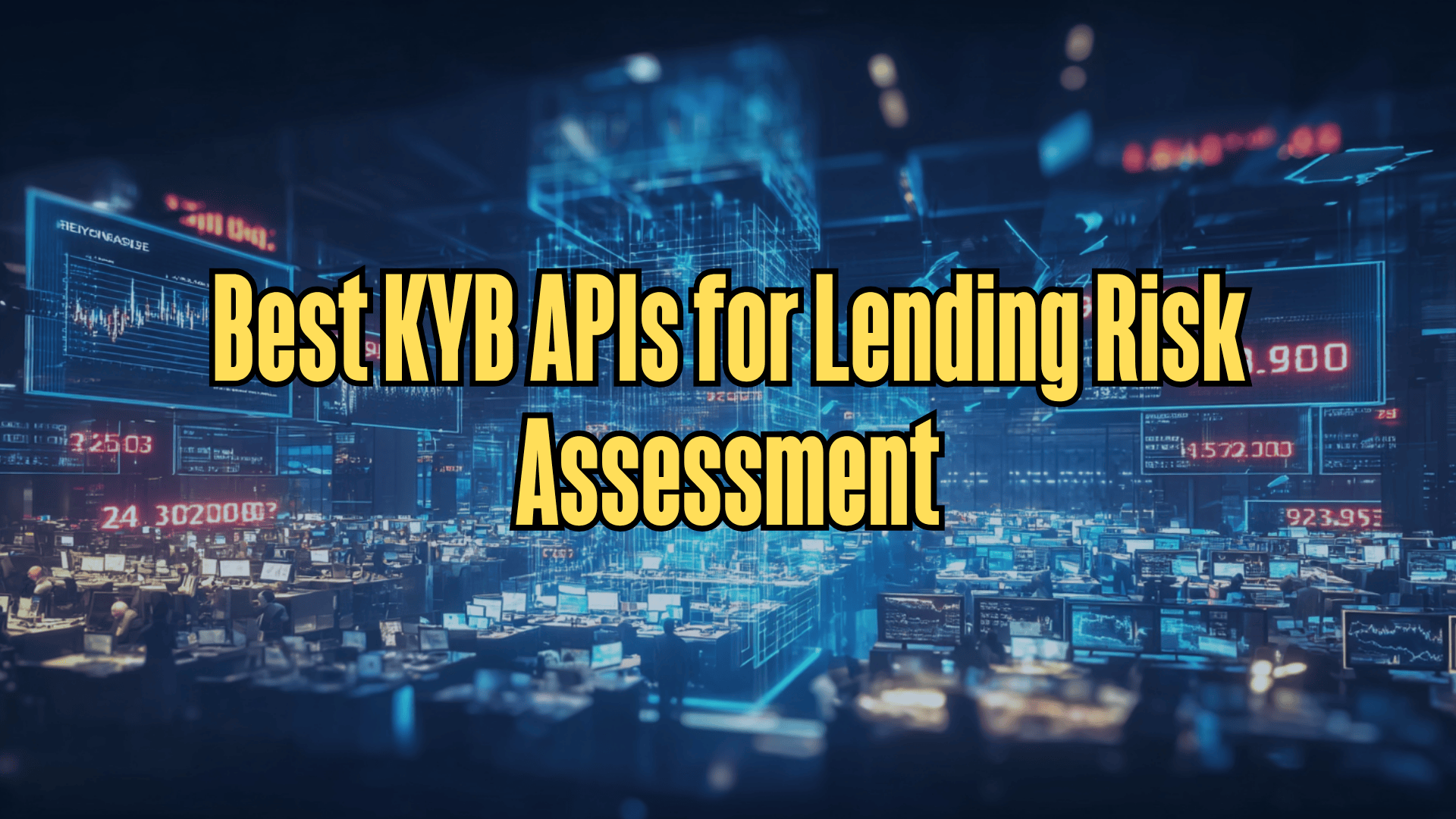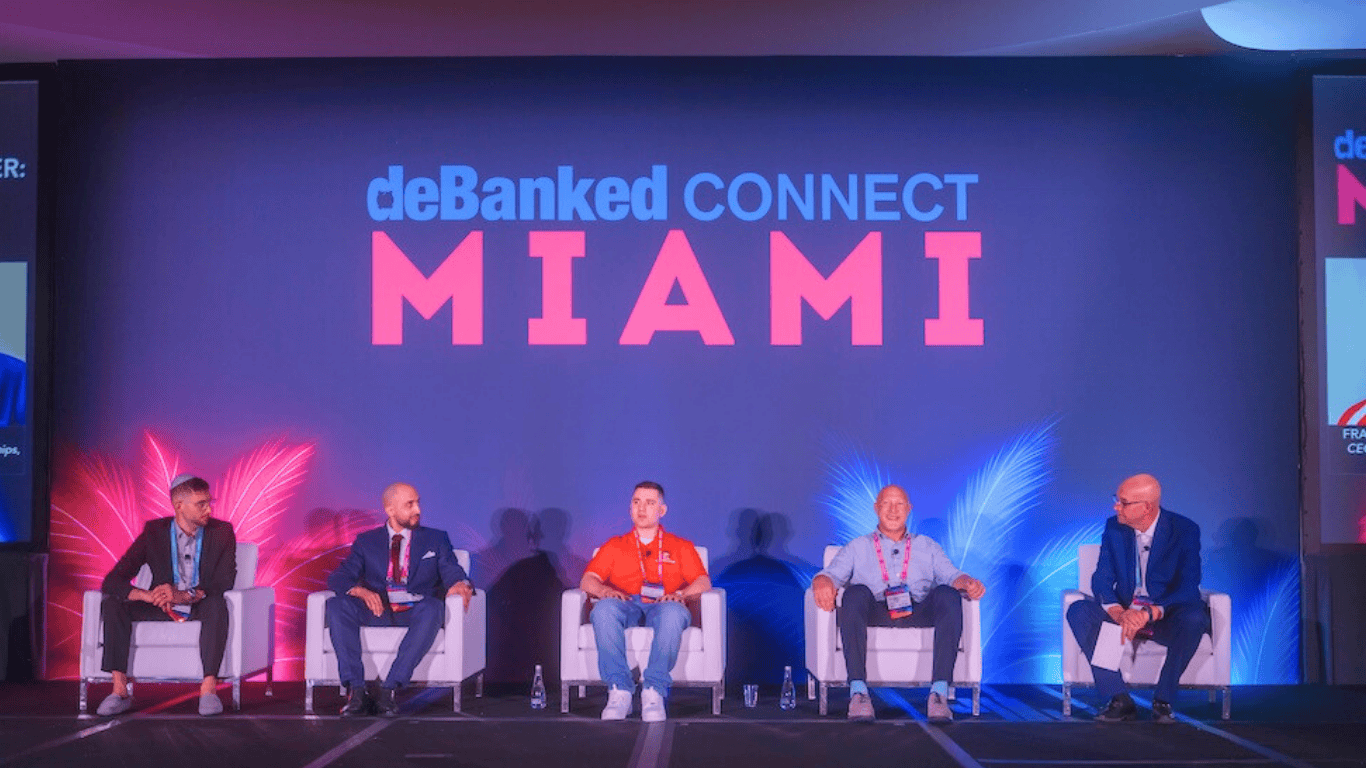What Are the Top 10 Business Verification APIs for Lenders?
The following top 10 APIs represent the current standard for integrating identity and business verification into modern lending technology stacks. They are segmented by their primary function to help institutional executives choose solutions that best fit their operational scope—be it specialized US data depth or comprehensive global compliance.
What Core Functionality Must a Verification API Deliver for Institutional Underwriting?
A modern lending infrastructure demands more than basic data retrieval; it requires a modular, multi-layered defense system capable of rigorous due diligence at machine speed. The APIs selected must function as reliable compliance tools, not just data pipes.
- KYB/AML Compliance Automation: Business verification APIs automate the core legal requirements of Know Your Business (KYB) and Anti-Money Laundering (AML) checks, streamlining client lifecycle management from initial onboarding to perpetual monitoring.
- This automation accelerates compliance processes, ensuring thorough identity checks and maintaining comprehensive audit trails to mitigate the risk of regulatory fines and penalties.
- Systems like Dotfile utilize risk scoring based on geographic location, industry type, and ownership complexity to automatically categorize risk, allowing low-risk customers to be fast-tracked within minutes.
- Many reputable identity verification APIs are designed to adhere to global regulations such as GDPR and KYC requirements, which is a necessary checkpoint when selecting a vendor.
- Multi-Layered Authentication for Fraud Prevention: Fraud prevention APIs leverage algorithms and machine learning to analyze transactions and user behaviors, identifying patterns that indicate fraudulent activity. Effective APIs employ a multi-layered authentication approach, combining various data points (government databases, biometrics, public records) to enhance security and prevent identity theft.
- Jumio automates identity verification using artificial intelligence, machine learning, and biometrics to improve conversion rates and prevent fraud, complying with regulations like KYC, KYB, and AML.
- DIRO offers an enhanced due diligence method by performing impersonation checks, requiring users to log in to banks, utilities, or government sources without sharing passwords, thereby capturing unauthenticated data directly from the source.
- For business lending, primary source data integration is a first-line defense against first-party fraud, where borrowers misrepresent financial condition or identity.
- Digital Document Retrieval and Verification: Top-tier APIs provide the ability to instantly retrieve and verify key corporate documents, moving beyond simple data matching.
- This includes accessing public and paid business filings, such as Articles of Incorporation, financial statements, and annual returns, crucial for a detailed KYB check.
- Some providers like Cobalt Intelligence offer a screenshotUrl that links to a real-time, timestamped image of the official state webpage, which serves as "irrefutable visual proof" for compliance and audit teams.
- Acuant is noted as an identity verification API focusing on document checks and biometric authentication, offering a reliable solution for verifying users in the fintech industry.
How Does Real-World API Performance Dictate Automated Lending Capacity?
Performance metrics are paramount to institutional lending; slow verification translates directly to high customer abandonment rates and lost revenue opportunities. Executives must ensure verification processes are instantaneous, resilient, and highly accurate.
- Speed and Instantaneous Decisioning: The market is driven by speed. Many ID verification solutions strive to deliver results in seconds. Berbix can confirm user identity in 2 seconds and automate 100% of transactions, while Veriff boasts a 6-second average decision time.
- Faster approvals and a streamlined, transparent process significantly improve customer satisfaction, as borrowers now expect decisions in minutes.
- Automation drastically accelerates the verification process, allowing businesses to perform identity checks in real time, reducing the time required for onboarding new customers or partners.
- Markaaz advertises under two-second verification to retrieve business data results and insights.
- Architectural Resilience and Error Handling: API performance must account for external failures, such as slow or offline state government websites. Robust APIs employ mechanisms to ensure business continuity.
- For requests that require longer processing (e.g., waiting several minutes for live data from slower state systems like Delaware), APIs should support asynchronous processing using callback URLs (webhooks) to notify your system when the data is ready, rather than forcing inefficient retry loops (polling).
- If the source is down (e.g., a state website returns a 500 error), the API should provide an error message to the client.
- Providing a confidence level score (e.g., 0.0 to 1.0) helps systems manage nuanced results, allowing lenders to set programmed thresholds for auto-approval and funnel low-confidence matches to manual review.
- API Uptime and Scalability: Enterprise-grade APIs are designed for high throughput and reliability. Solutions must handle massive processing loads without compromise.
- Business verification APIs are highly scalable, built to handle hundreds or thousands of verification requests daily.
- Automated underwriting systems must be designed to handle increasing loan volumes efficiently; platforms like 1West process over 5,000-6,000 full loan submissions per month.
- High-volume traffic to a single state can be managed internally by the API provider using a queue, processing a limited number concurrently and queuing the rest, thereby preventing a complete system failure or a hard throttle (429 error) unless the traffic is excessively high.
Which Data Coverage Gaps Are Critical for Alternative Lenders to Close?
In underwriting, missing critical data points exposes the lender to unacceptable risk. The best APIs fill key gaps beyond basic business name verification by accessing specialized government and financial data feeds.
- Full US Business Registration Coverage: For domestic lenders, accessing real-time entity data from all 50 U.S. states and the District of Columbia is non-negotiable. This primary source data confirms the business name, operational status (active, inactive, dissolved), filing date, and registered agent information.
- SOS APIs are especially valuable for capturing key underwriting inputs, such as the business formation date, used to estimate business tenure—a major milestone affecting competitive offers from funding partners.
- Data normalization is crucial because different states use different terminology (e.g., "Good Standing" vs. "Active"). APIs standardize these statuses into predictable outputs for automated workflows.
- The ability to perform a single query across all 50 states for full verification, sometimes for a bundled credit cost, is highly efficient when the business's registration state is unknown or uncertain.
- Tax ID and Lien Verification: Advanced risk mitigation requires confirming tax identity and identifying financial encumbrances. Cobalt Intelligence and Middesk both offer capabilities for:
- TIN/EIN Verification: Validating that a submitted business name and Employer Identification Number (EIN) pair match IRS records in real-time, preventing identity spoofing and ensuring authenticity.
- UCC Filing Data: APIs can retrieve Uniform Commercial Code (UCC) filing data in supported states (e.g., 11 states for Cobalt Intelligence) to instantly uncover existing liens, which is crucial insight into a business’s financial health before extending credit.
- Other specialized checks offered by verification APIs include court data access (NY State and Miami-Dade County) and contractor license verification, necessary for industry-specific due diligence.
- Ultimate Beneficial Owner (UBO) and Key Personnel Verification: KYB requires verifying the identity of key stakeholders (UBOs and officers) to uncover complex ownership structures used to hide criminal activity or high-risk individuals.
- Platforms like Middesk and The KYB provide UBO identification services, sometimes integrating with other providers like Socure for enhanced beneficial ownership details.
- Verification APIs aid in compliance with AML and Counter-Financing of Terrorism (CFT) laws by validating ownership structures and screening key individuals against sanctions and PEP lists.
- The KYB offers compliance screening that includes AML checks on the business and its key people, alongside adverse media checks and regulatory enforcement lists.
Quantifying Operational Leverage: The Hard Numbers Behind Automated Business Verification ROI
Lending executives need a clear, quantified ROI for verification APIs to transition from manual to automated underwriting. This involves measurable improvements in efficiency, fraud reduction, and scalability. We detail the specific cost savings and conversion increases from these APIs, using industry results and lending technology benchmarks.
What is the Direct Cost Arbitrage per Application?
The initial calculation of substituting costly human labor with machine intelligence is the most straightforward ROI component. The savings manifest immediately by eliminating the manual hours spent gathering data that an API retrieves in seconds.
- Labor Cost Elimination per Manual Check: Based on industry benchmarks and operational interviews, the manual due diligence required to check Secretary of State (SOS) status, conduct a judicial search, and perform EIN verification consumes approximately 3.5 minutes per application. If internal US-based processing staff are valued conservatively at $25 per hour, this equates to a direct labor cost of approximately $1.46 per application (3.5 minutes / 60 minutes * $25/hour) spent solely on verification.
- API Unit Cost at Scale: Enterprise-grade verification platforms shift costs onto a usage-based billing model designed to reward volume. While pricing starts at a base rate (e.g., $750 for 1,000 lookups), high-volume users processing 10,000 or more lookups monthly see the price drop significantly, often down to approximately 35 cents per lookup. This differential creates a base saving of at least $1.11 per simple check, or $5,550 saved monthly for a lender processing 5,000 lookups per month.
- Measurable Annual Reallocation of Human Capital: By eliminating manual tasks like data entry, APIs allow staff to focus on high-value activities. Automated API integration saves an analyst approximately $6,568.64 each year by cutting down on manual data entry and context switching. For a large operation scaling to thousands of applications per month (like 1West's 5,000-6,000 full loan submissions), this automation creates "a ton of bandwidth" for the processing team.
How Does Accelerated Decisioning Drive Revenue and Conversion?
Beyond simple cost substitution, the real economic impact is realized through the velocity of capital deployment. Faster verification directly improves customer experience, boosts conversion rates, and allows lenders to seize market share.
- Dramatic Reduction in Processing Time: Automated underwriting systems (AUS) have demonstrated a capacity to reduce overall loan processing time by 70%. This reduction moves decision latency from days or weeks to minutes. Idea Financial, for example, achieves automated offers in 20 minutes or less, which can drop to 30 seconds if bank data is pre-processed.
- Conversion Rate Lift via Auto-Approval: Sophisticated KYB platforms integrate verification results (like SOS data and UBO checks) to feed an intelligent decision engine. One national bank optimized its onboarding using verification APIs and saw its compliant auto-approval rate jump from 40% to 75-80%. For high-volume fintechs, automating verification allows customers to "self-service themselves all the way through," a process observed for 25% of customers at one major marketplace.
- Monetizing Improved Loan Terms: Real-time verification, specifically for the business formation date pulled from SOS data, allows lenders to precisely measure a business's tenure (e.g., meeting the critical milestones of one, three, or five years in business). Hitting these thresholds results in the customer receiving "much more competitive offers" and obtaining approvals from funders who might have otherwise declined the deal, directly translating verified data into higher loan profits.
How is the "Unquantified" Fraud Mitigation Actually Quantified?
The user correctly points out that fraud loss mitigation is often dismissed as "unquantified." However, sources provide specific data points on how advanced verification APIs prevent fraud, which is quantifiable in terms of avoided operational waste and reduced loss exposure.
- Stopping Wasted Effort on Fraudulent Files "From the Door": Integrating checks like TIN Verification (validating business name/EIN match against IRS records) early in the workflow ensures the lender is dealing with a "verifiable business right from the door". This prevents "a lot of manpower" from being committed to a file that would inevitably be declined later, eliminating operational cost sinks tied to fraud intake. First-party fraud (borrowers misrepresenting financials or identity) accounts for 69% of fraud risk in some sectors.
- Reduced Loss Exposure through Enhanced Risk Signals: Automated underwriting systems deliver lower default rates (documented at 6.8% lower with algorithmic underwriting) and reduce fraud losses. Verification APIs act as a primary defense by instantly flagging high-risk entities: Bectran leverages real-time SOS data to "severely curtail the risk of approving fraudulent credit applications". This includes catching dissolved, inactive, or newly registered businesses—all red flags for shell companies or synthetic identities.
- Strategic Savings in Audit and Compliance Overhead: Automated systems produce robust audit trails, replacing manual document handling and screenshot capture. Verification solutions that provide unalterable, timestamped screenshots of the actual primary source record offer "irrefutable visual proof" for compliance and legal teams. This feature significantly strengthens institutional defensibility during regulatory reviews (KYB/AML), directly mitigating the risk of regulatory fines and reducing staff time spent preparing for audits.
Stack Compatibility: Can My Operations Person Handle Implementation Into Our LOS/CRM?
Integration should be viewed as an engineering task, but modern APIs are designed to simplify the technical lift, transforming the process from weeks into days for competent development teams.
- Developer-Friendly Architecture and Documentation: The best verification APIs are RESTful and come equipped with comprehensive documentation, including endpoint descriptions, request/response formats, authentication methods, and sample code in various programming languages.
- This high level of documentation simplifies the integration process, which is why 1West's CTO Shane estimated the core build of the integration took "less than a week".
- Providers offer sandbox environments and test entities, allowing developers to test API calls without affecting live data, ensuring smooth functionality and integration before going live.
- Many providers, such as The KYB, offer extensive developer hubs and documentation to maximize utilization of their APIs.
- Seamless Integration with Core Lending Systems: API-first design ensures compatibility with existing loan origination systems (LOS) and customer relationship management (CRM) platforms, such as Salesforce.
- Automated workflow solutions often integrate the API to trigger live searches upon new lead creation in the CRM, streamlining the process.
- Bectran, for instance, uses a RESTful post to access SOS data points like good standing, address information, and filing dates, proving successful integration into sophisticated lending platforms.
- Platforms like Alloy provide an end-to-end identity and fraud prevention platform that financial institutions and fintechs can use to automate and manage decisions for onboarding, AML monitoring, and credit underwriting
- Support and Flexibility for Asynchronous Workflows: Implementing APIs at scale often requires dealing with the varying speeds of external data sources. Utilizing webhooks or callback URLs is the professional solution for this challenge.
- For slower systems (like certain state databases), APIs allow the client to submit a callback URL with the initial request; the verification platform then posts the results back to the client's endpoint once the data is ready, thereby avoiding application timeouts.
- Dedicated support from API engineers can be provided, sometimes including free integration help if the client signs up within a specified period.
- Integrators must define clear authentication mechanisms (such as dynamically generated unique query parameters or tokens) to ensure the endpoint listening for the callback post is secure and the request is legitimate.
Vendor Comparison: How Should Executives Differentiate Between Specialized and All-In-One Platforms (e.g., Cobalt vs. Middesk/Trulioo)?
Choosing the right vendor requires executives to balance the depth and freshness of specialized data against the convenience and breadth of an all-in-one platform.
When to Choose Specialized US Verification (e.g., Cobalt Intelligence):
- Prioritizing Primary Source Real-Time Data: Choose a specialized API like Cobalt Intelligence if your critical underwriting decisions rely absolutely on the freshest, primary-source data from US government agencies (SOS/IRS). This is vital for time-sensitive transactions and maximizing fraud prevention effectiveness.
- Cobalt’s strength lies in providing the essential raw, normalized data points required for automated decisioning, plus the audit-ready screenshots demanded by compliance teams, which often replace manually obtained documents.
- The approach of integrating best-of-breed specialized APIs for verification (Cobalt) alongside dedicated financial aggregators (Plaid) often provides superior accuracy and deeper insights than an all-in-one solution.
- Pricing is often more cost-effective for high-volume, domestic, primary data requests, especially when compared to full-suite platforms that charge for comprehensive risk enrichment on every request.
When to Choose a Comprehensive Platform (e.g., Middesk):
- Needing Turnkey Risk Orchestration: Select Middesk if your immediate need is a complete Know Your Business (KYB) platform that integrates multiple verification layers, risk assessment tools, and workflow features (like alerts and automated updates) out-of-the-box.
- Middesk excels at enriching basic SOS data with financial and risk indicators, such as industry classification, litigation, and UBO verification via partners.
- This approach speeds up time-to-launch for companies that lack the internal development resources to build custom logic around raw data conduits.
- Middesk focuses on enabling a high uplift in auto-approval rates (e.g., 40% to 75-80% achieved in case studies) by automating the holistic risk picture.
When to Choose a Global KYB Solution (e.g., Trulioo/Sumsub):
- Handling Cross-Border Deals or Global Scale: If your operations extend beyond pure domestic US lending, a global provider is necessary. Trulioo offers identity verification in 195+ countries, while Sumsub claims access to 30K+ global data sources across 220+ countries and territories.
- These global platforms are built to handle the complexities of multi-jurisdictional AML, KYC, and KYB compliance requirements, which vary significantly across continents.
- Trulioo's Business Verification services confirm entities anywhere in the world and assist with KYB compliance, including specialized business essentials and complete verification of ownership and subsidiaries.
Global platforms often provide manual corporate document review for jurisdictions where registry data is sparse or non-existent (e.g., Sumsub offers manual review for corporate documents from 140+ countries if registry data is unavailable).












.png)